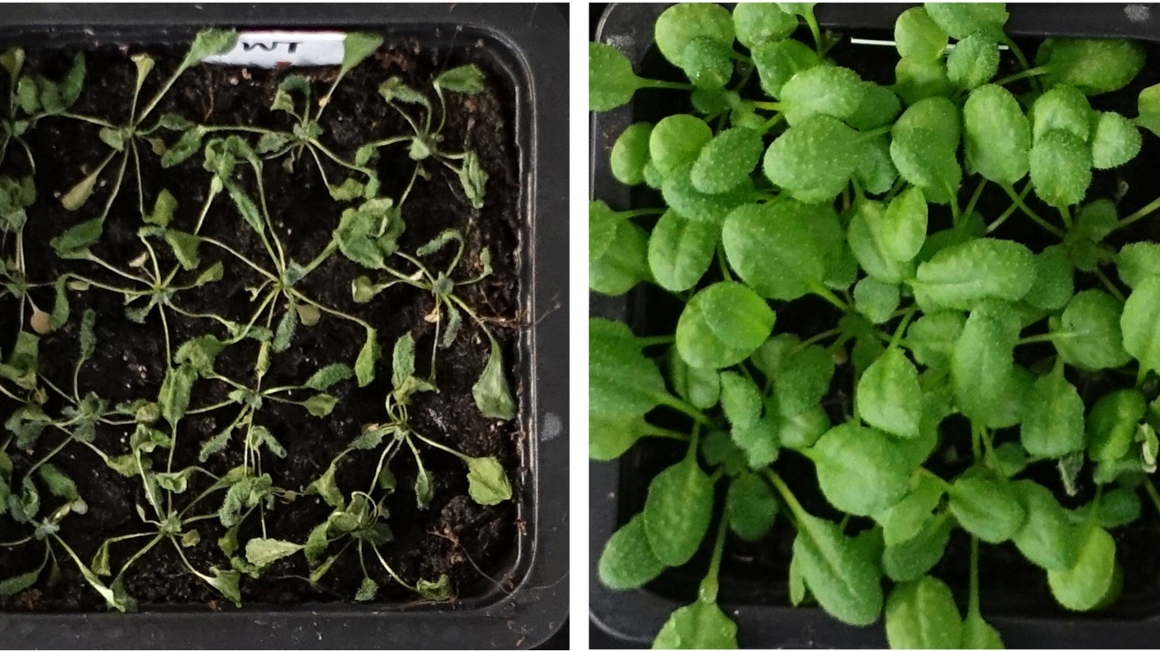New research offensive for sustainable plant protection
The Federal Ministry of Education and Research has established new funding guidelines to promote the development and application of new methods for the sustainable protection of crops against insect pests and plant pathogens.

Modern agriculture faces numerous challenges. In addition to ensuring food security, climate and environmental protection must also be taken into account, biodiversity preserved and economic aspects considered. At the same time, climate-related weather extremes are leading to a greater spread of invasive insect species and the pathogens they transmit, against which plants are increasingly developing resistance. In order to reduce yield and quality losses in agriculture and protect biodiversity and ecosystems, sustainable alternatives for plant protection are urgently needed.
Protecting crops from insects and pathogens
Research and development are important drivers here in identifying, tapping into and exploiting the potential of the bioeconomy for sustainable agriculture. With ‘PhytoProtect’, the Federal Ministry of Research, Technology and Space (BMFTR) has now launched a new funding measure to promote the development of new methods and approaches for adapted, efficient and innovative protection of crops against damage from insects and pathogens.
PhytoProtect thus makes a concrete contribution to the implementation of the National Bioeconomy Strategy. In particular, this strategy helps to tap into the potential of the bioeconomy, expand and apply biological knowledge, develop innovative bioeconomic solutions in line with the UN Sustainable Development Goals, and establish Germany as a leading location for bioeconomy and biotechnology.
Using AI and biotechnology as key technologies
Biological solutions in agriculture are being promoted. They must cover the entire spectrum of available methods and technologies in the fields of plant-insect interaction and plant protection research. The aim is to reduce yield losses and resource use while making a sustainable contribution to the conservation of biodiversity and ecosystem services. ‘Biotechnology, as a key technology, and the application of artificial intelligence play a central role both in elucidating the interactions between plants and insect pests and in developing new sustainable measures for integrated plant protection,’ according to the funding guidelines. The measure is also intended to contribute to strengthening entomological expertise in Germany.
The funding measure defines six strategic objectives:
- generating knowledge about the biology of plant-damaging insects
- predicting the occurrence of invasive insect pests and the plant pathogens they transmit in Germany
- promoting the resilience of crops to insect pests and the pathogens they transmit
- utilising new active substances, mechanisms and application techniques for exogenous plant protection
- protecting and promoting insect biodiversity, and
- integrating state-of-the-art methods into basic and applied research (funded by this measure)
Two funding modules for plant protection research
Funding is provided under funding modules A and B.
Module A supports research projects on biotic interactions between plants and insect pests and plant pathogens, as well as the practical application of these findings in plant protection measures and damage threshold concepts.
Module B supports highly innovative, application-oriented research projects that focus on new biological solutions and applications for endogenous and exogenous plant protection.
The maximum duration of projects in Module A or Module B is four years.
Funding for individual and collaborative projects
The aim of the funding measure is to support application-oriented, interdisciplinary and transdisciplinary individual or collaborative projects in which academic partners from university and non-university research institutions work together with commercial enterprises.
Eligible applicants are therefore commercial enterprises – in particular SMEs – as well as universities and non-university research and scientific institutions, federal and state institutions with research tasks, and public and private law corporations based in Germany.
The new call for proposals on sustainable plant protection
The funding guideline is entitled ‘PhytoProtect – New methods for the sustainable protection of crops against insect pests’.
Click here to view the announcement of the call for proposals on the BMFTR website (only available in German).
Two-stage application process
The BMFTR has commissioned Project Management Jülich (PtJ) to handle the funding measure. The contact persons are Jennifer Pratscher and Andreas Mahn.
The application procedure is a two-stage process. In the first stage, project outlines must be submitted to the project management agency via the electronic application system 'easy-Online' by 3 November 2025 at the latest. In the second stage, projects that have been positively evaluated can then submit a formal funding application via the electronic application system.


